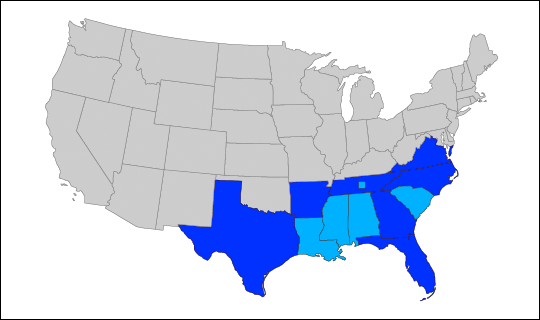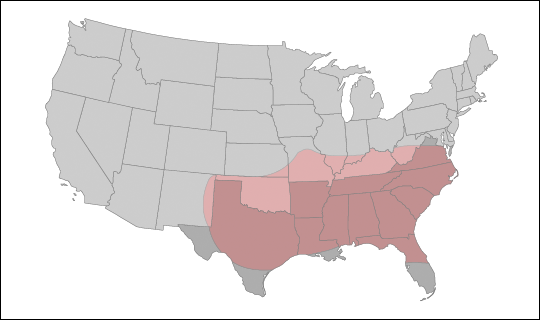...or how those who hated the Democrats most secured the election for Truman:
The Dixiecrat insurrection occurred after southern Democrats realized FDR was not an extremist, but a populist who had changed their party forever and whose successor was unlikely to give much special attention to the cause of the south rising again the way previous Democrats had. With each election, FDR's margin of victory narrowed but in 1944 he still routed Thomas Dewey, himself a moderate, who would go on to lose to Harry Truman in 1948.
By today's standards, Dewey and Truman may as well have been the same guy; America had emerged from the depression and the war with a near-universal populist attitude. Indeed, the ideological convergence of the two parties may have been the very mechanism that allowed for a viable third party insurrection. Still, partisan identity is serious business; were one to allege at the time that the similarities between the two major candidates outweighed the distinctions, one would have received the sort of opposition one might expect from someone who's been buying Fords his whole life and has just been told they're essentially the same as Chevys. But when your way of life seems at risk, partisanship goes by the wayside and it is ideology that counts. Southerners recognized that they no longer had a partner in the Democrats. To them, the choice was yankee candidate 'a' vs yankee candidate 'b'.
Above: Blue denotes states to include Strom Thurmond, the Dixiecrat, on the Ballot in 1948. Light blue indicates states won by Thurmond. If any of this seems familiar it's because these are the exact states that seceded from the Union and formed the Confederate States of America in 1861.
Contained within the preceding map is one explanation for why the 1948 election went to Truman and not Dewey. On the surface, and without historical context it may appear that votes lost to the Dixiecrats were votes lost by the Democrats; so how exactly does this help Truman, one may ask? Well, one must remember that in the Bible Belt (aka former confederacy) this election was a referendum on the Democrats, so votes lost would likely have gone to 'not Truman', which without the Dixiecrats would have meant Dewey. But to Dewey's dismay and miscalculation, this was not the case; the voters in the Bible belt wanted something more than just 'not Truman'; they needed it to be their guy, even if it meant losing to Truman.
Above: the former confederacy is indicated by shaded areas; the reddish patch signifies the Bible Belt, a southern-Baptist voting bloc.
Examine the overlap in the preceding compound map. This is not a cynical observation; in the event of the dissolution of physical borders dividing two cultures, religion often serves as a marker, helping preserve and reinforce the distinctions between those cultures. So remember this: when the south feels ignored, it's not just about religion, or politics; it's about national identity. The only time the south votes for the winner is when it's their guy.
So the question is... If Mitt Romney gets the nomination, will he receive a third party challenge, or at least a no-vote from the southern-baptist demographic?


